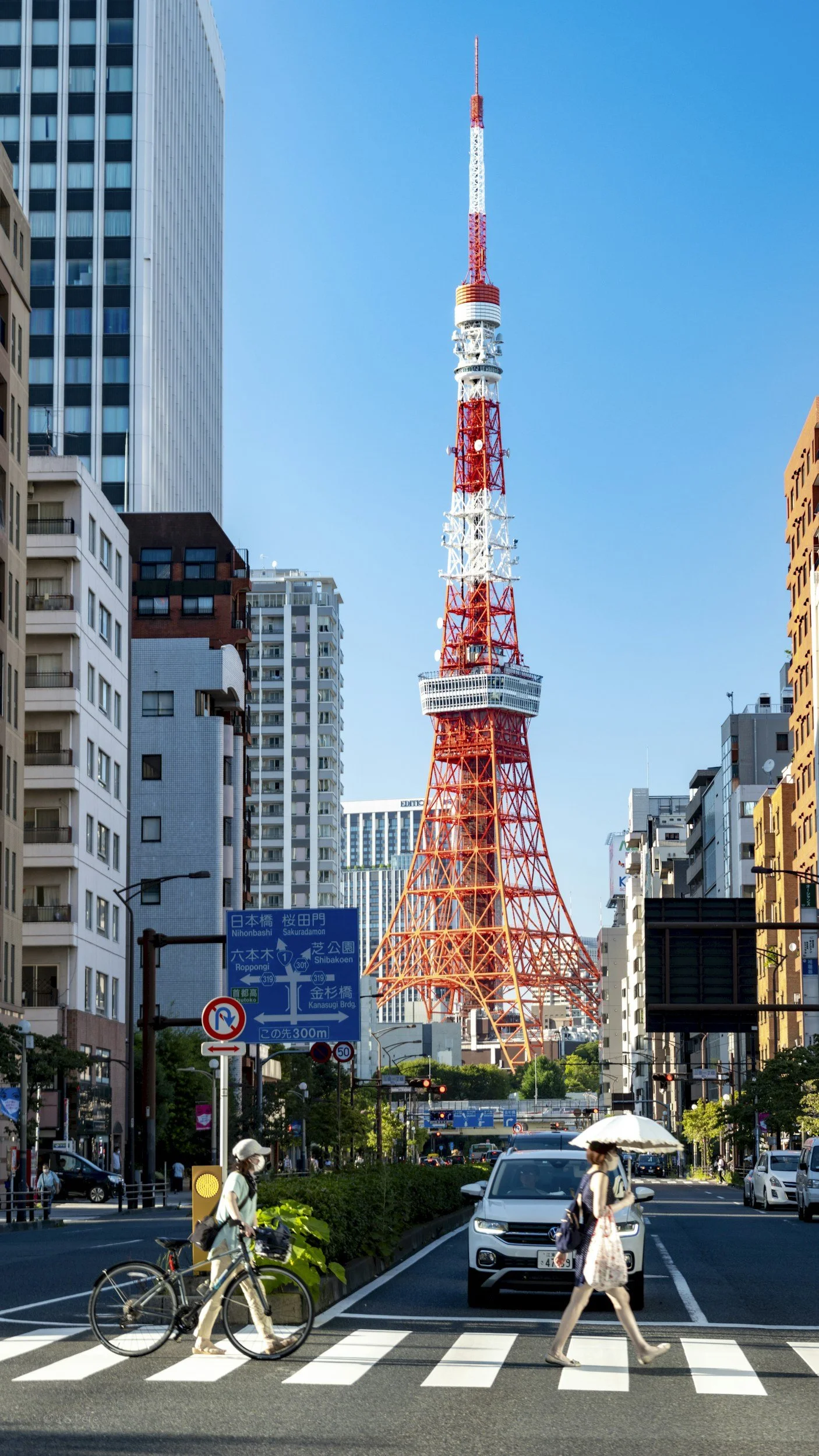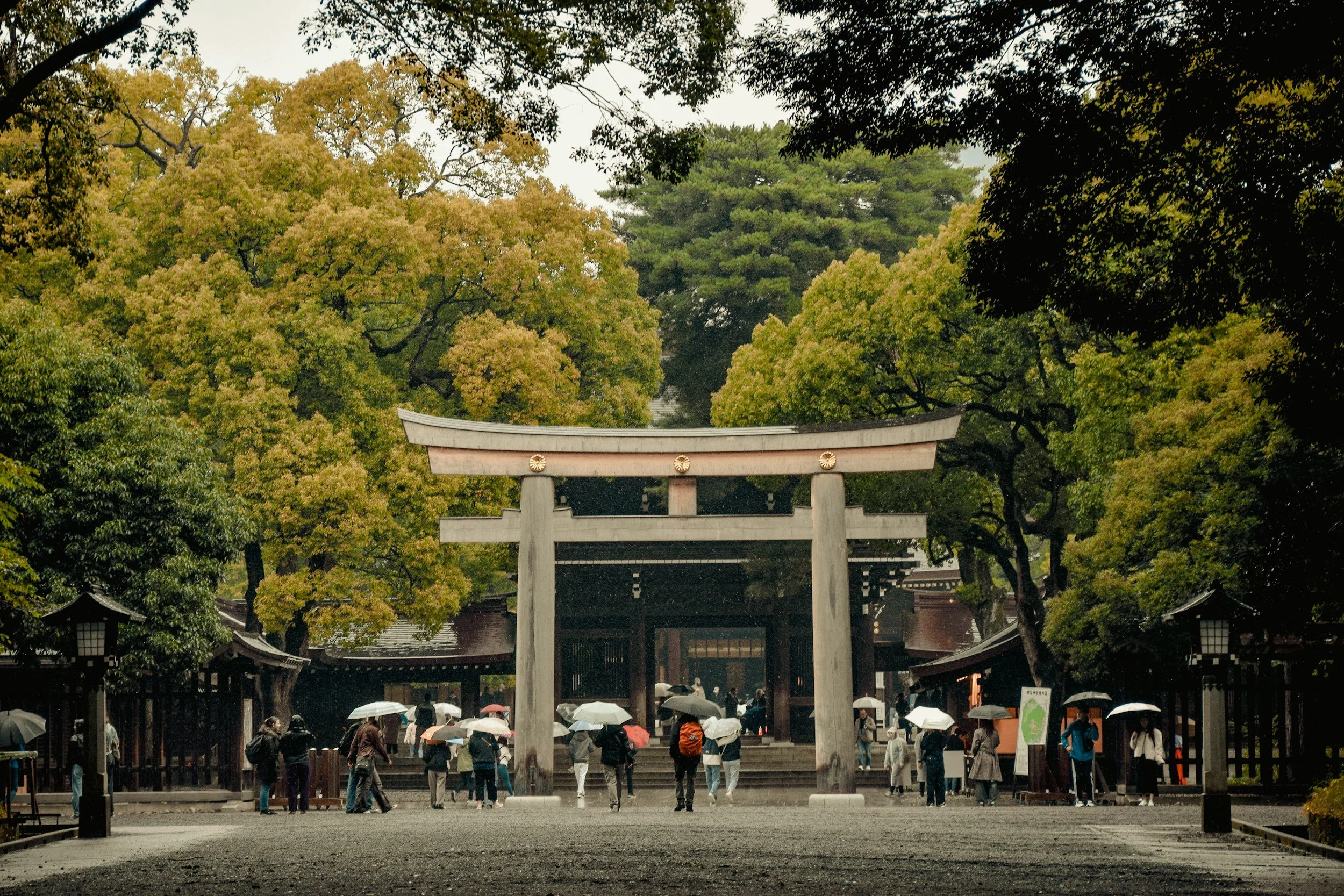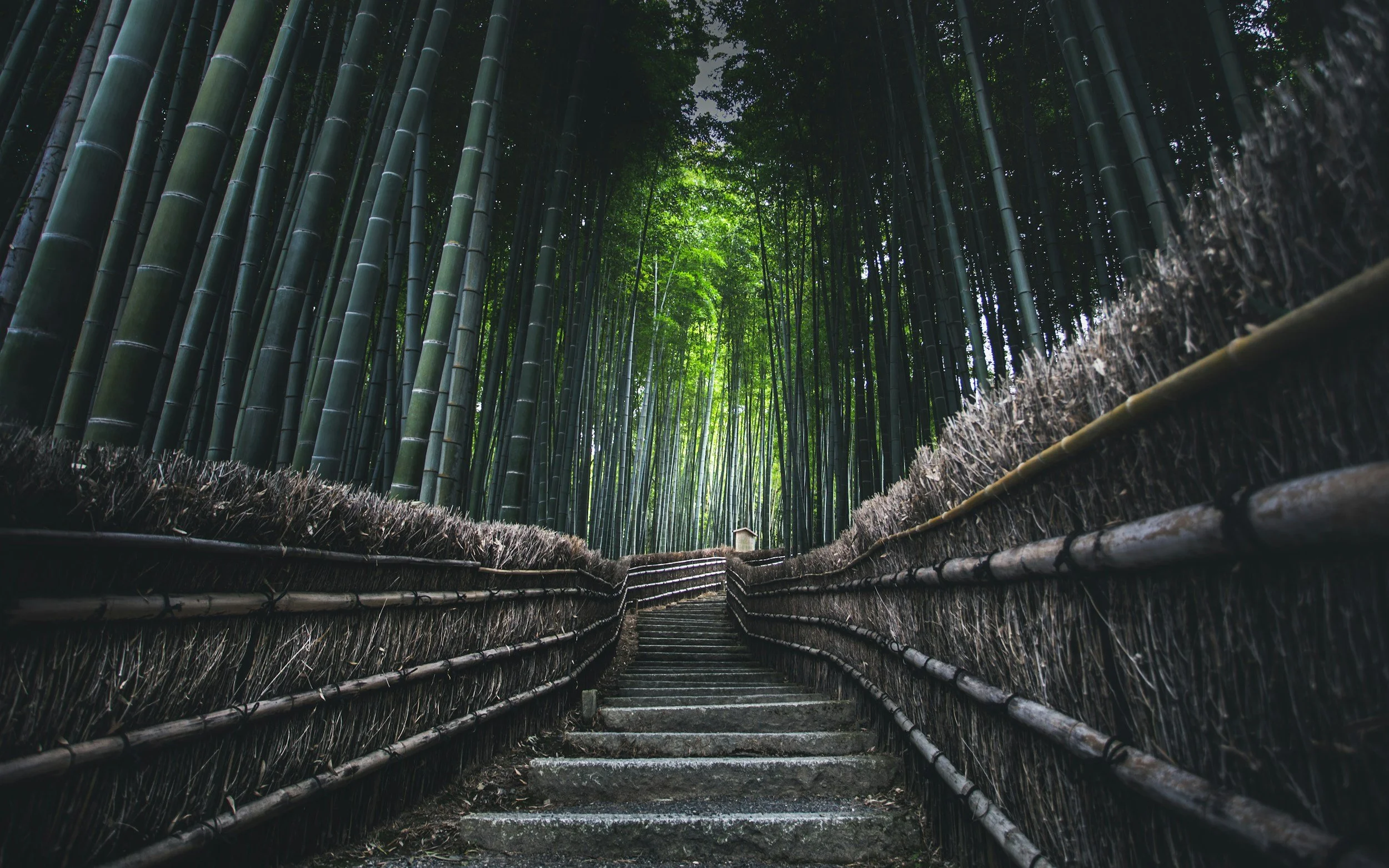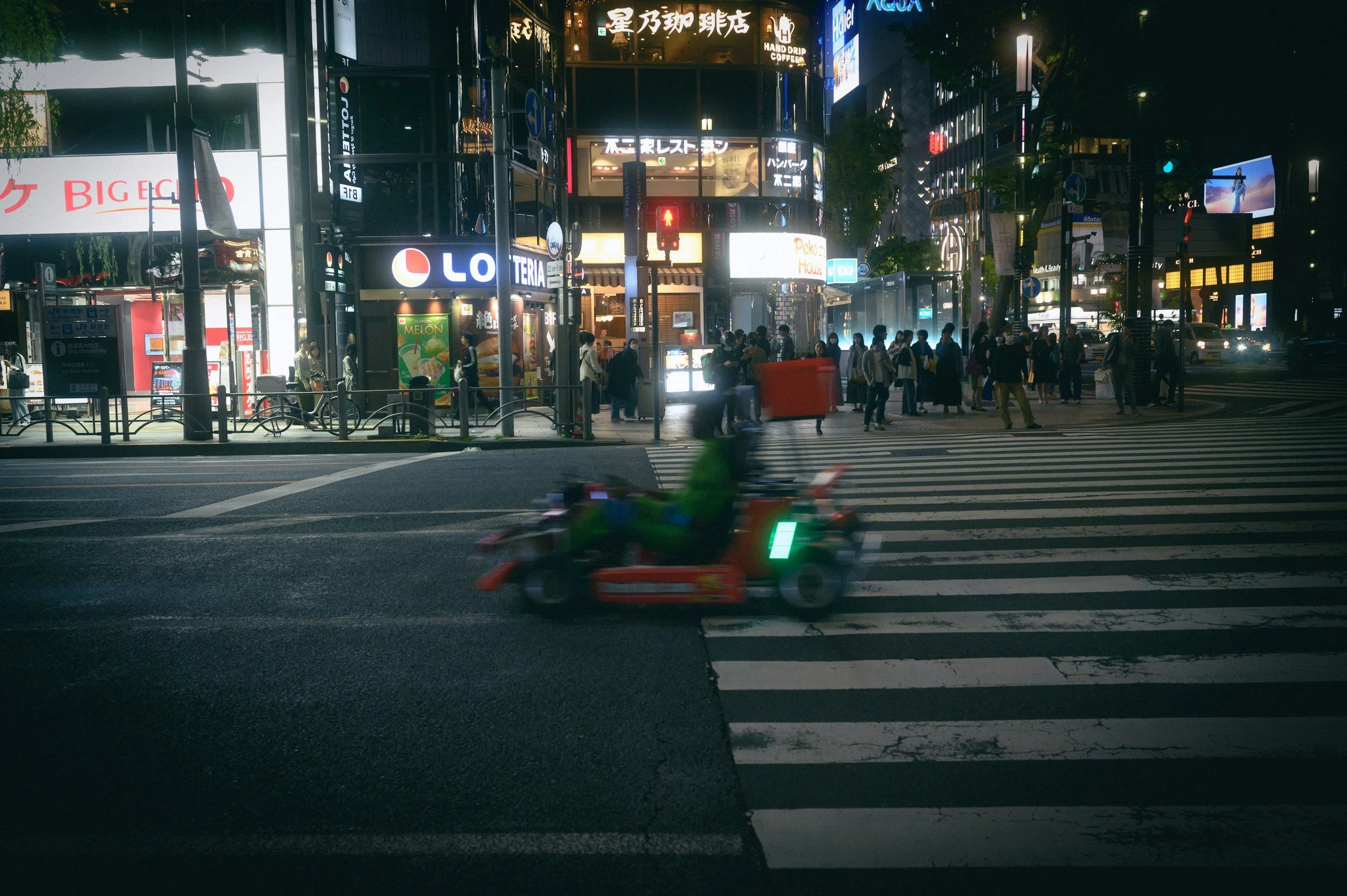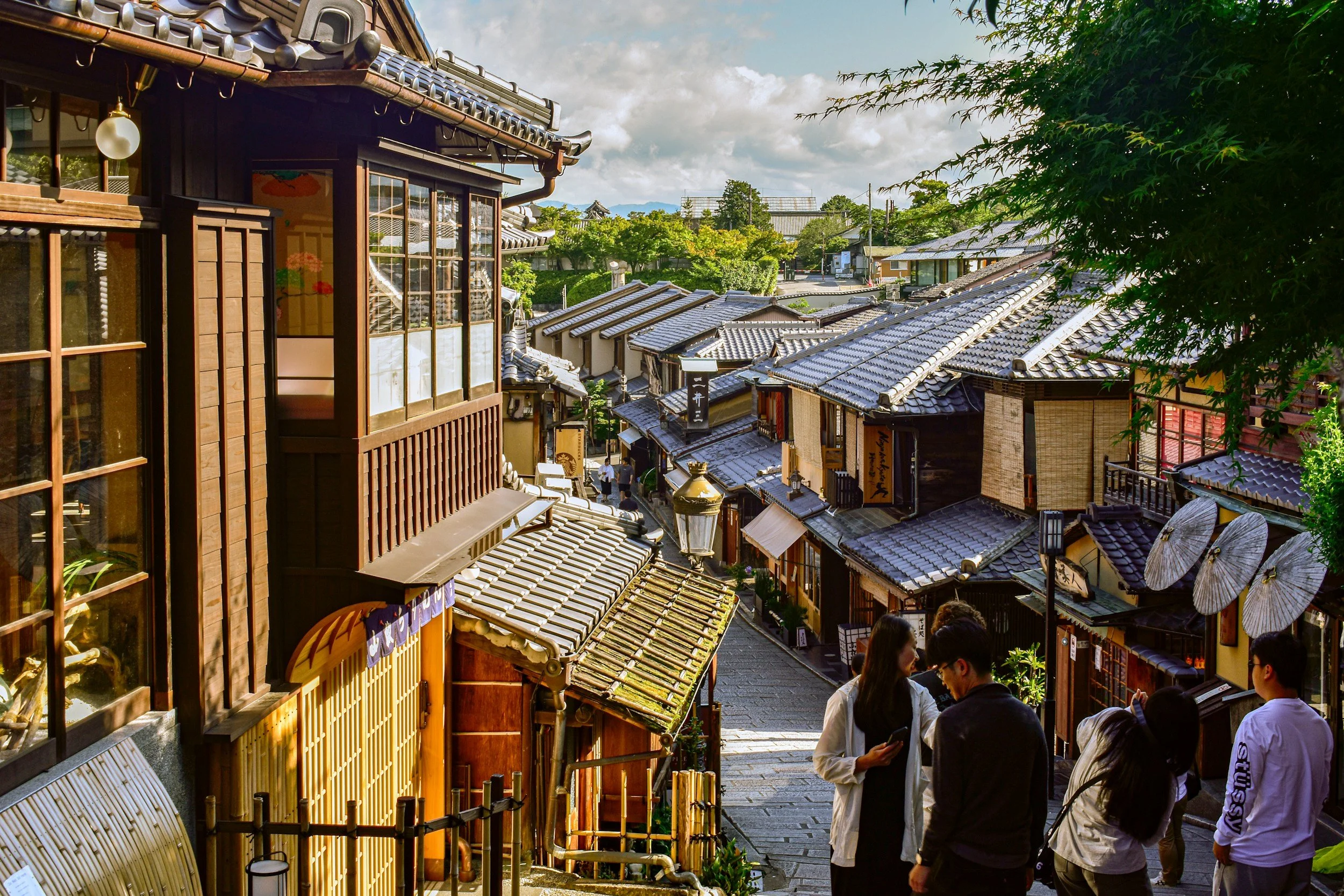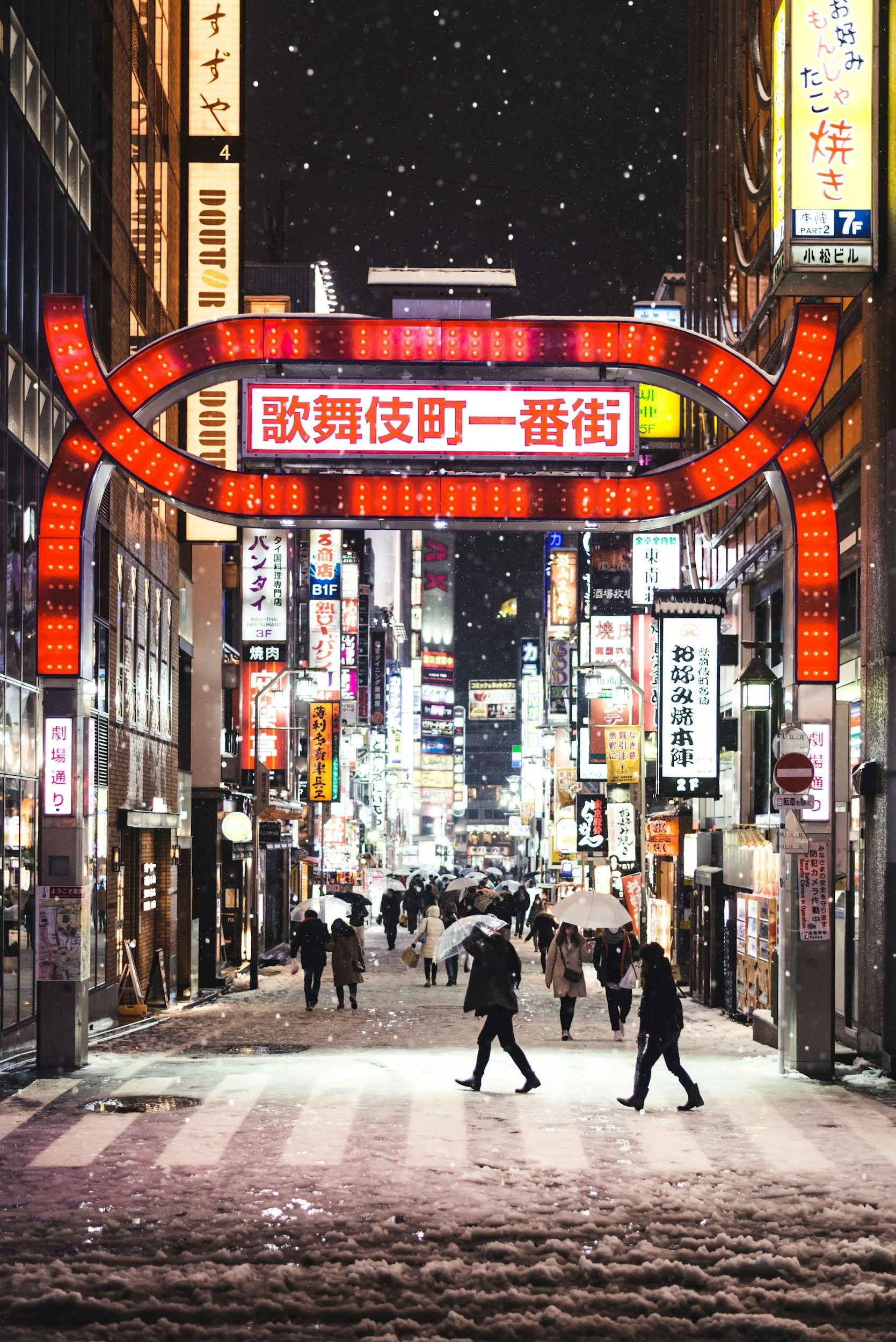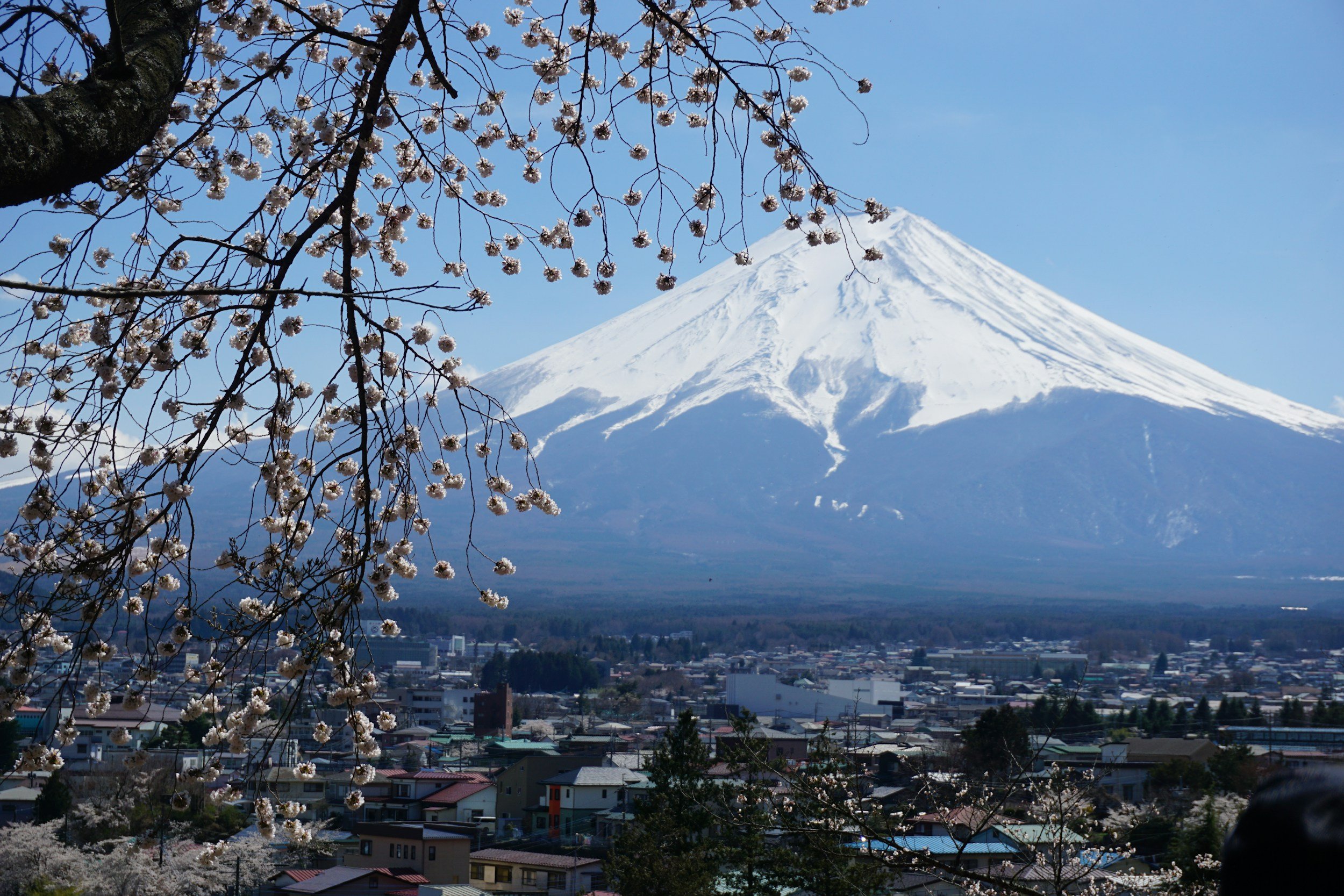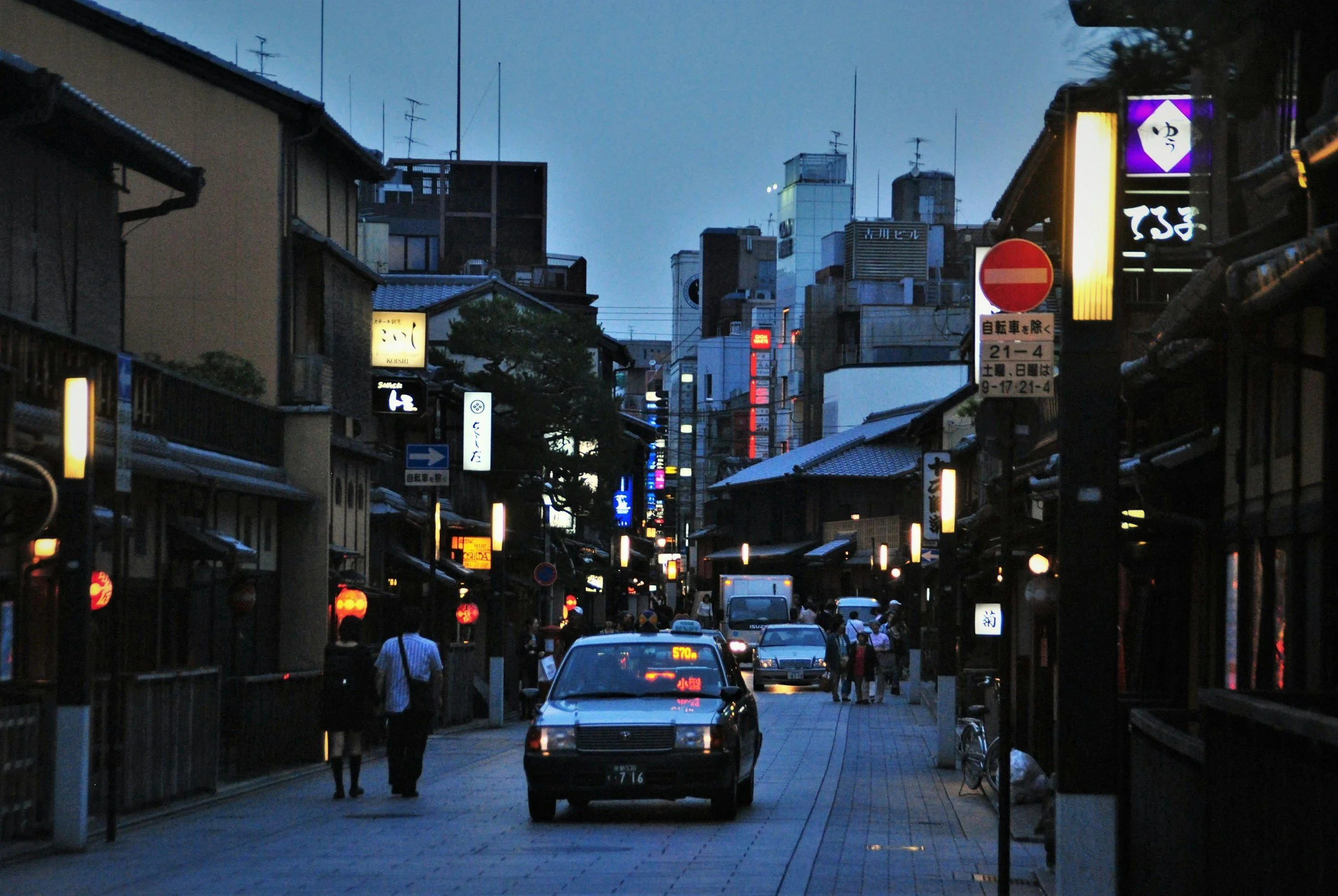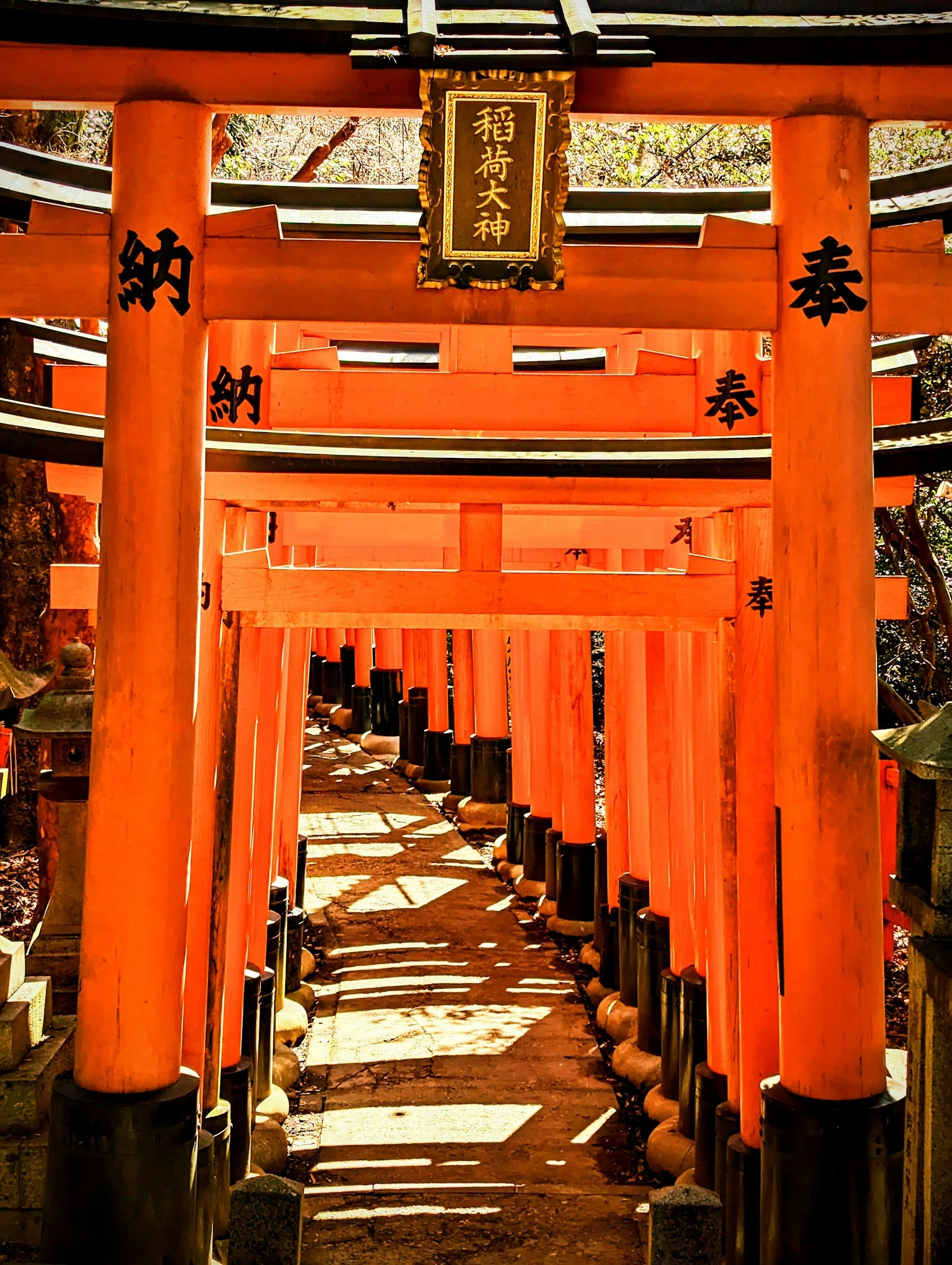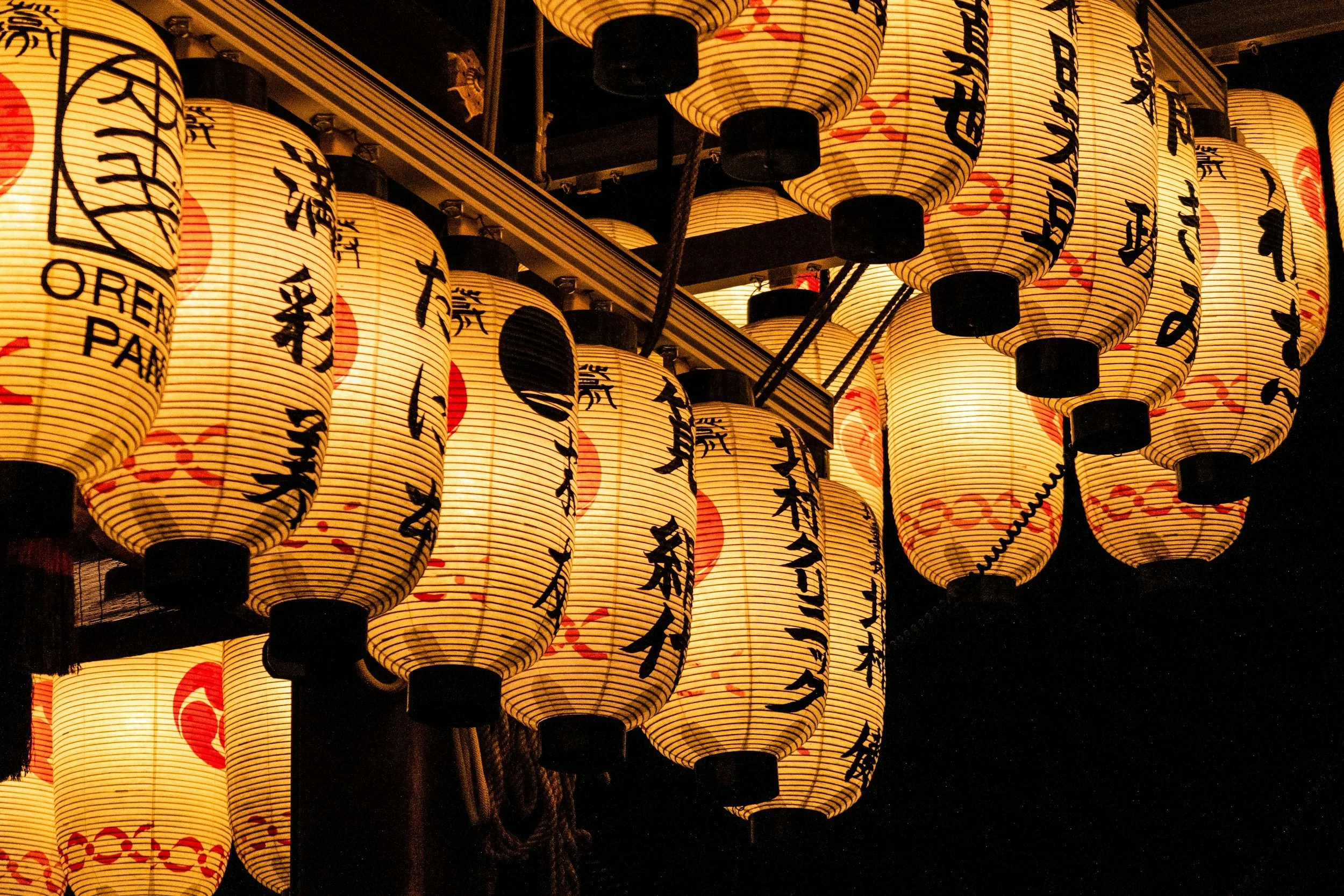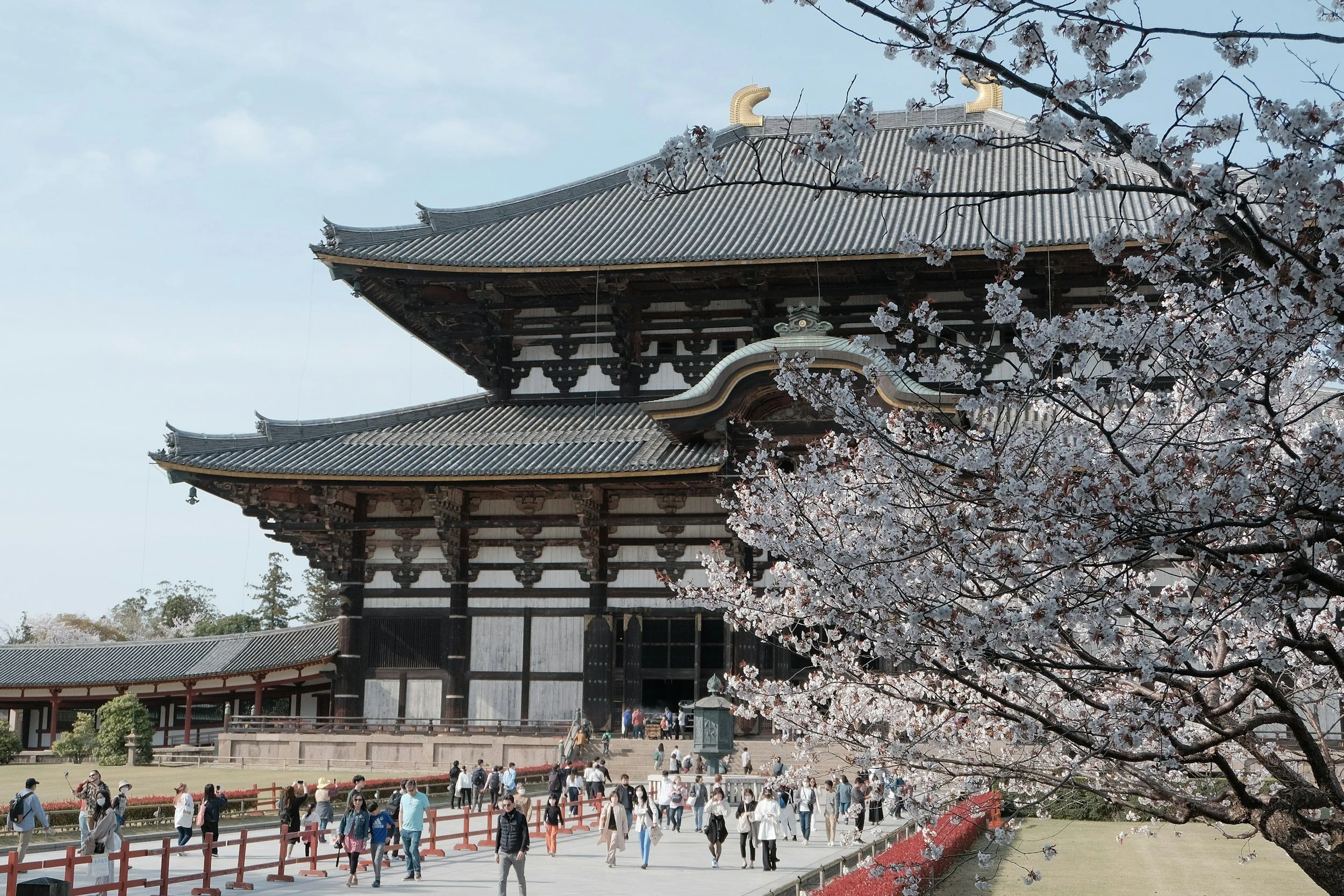
Two-Week Japan Travel Guide
Experience Japan’s top highlights on a 14-day journey with this travel guide, covering Tokyo, Kamakura, Mt. Fuji, Kyoto, Nara, and Osaka. Find must-try foods, easy bullet train and metro tips, can’t-miss sights, and local activities for every stop. Whether you're craving the freshest sushi, temple-hopping, or neon-lit nightlife, this guide breaks down each day, making planning a breeze. Bring your curiosity and appetite, Japan’s best adventures start here!
Experience the Magic of Japan With This 14 Day Japan Travel Guide
Day 1: Tokyo
Day 1: Tokyo - A Taste of the City
Morning
Arrive, check in to your hotel, and settle in.
Head to Shibuya Crossing. Experience the world-famous scramble crossing by walking through the crowd or watching from the Starbucks across the street.
Stop by the Hachiko Statue nearby, a beloved Tokyo landmark and meeting point.
Mid-Morning
Walk to Harajuku and explore Takeshita Street with its quirky shops and colorful street snacks like crepes.
Grab a quick coffee or matcha latte at one of the local cafés.
Lunch
Enjoy conveyor belt sushi at Uobei or Sushiro in Shibuya or Harajuku for fresh, fun, and fast sushi choices.
Afternoon
Visit Meiji Shrine, a serene Shinto shrine surrounded by forest near Harajuku Station.
Take a stroll down Omotesando Avenue for some stylish window shopping and to admire the architecture.
Dinner
Try a bowl of ramen at Ichiran or Ippudo, popular ramen chains in Shibuya or Shinjuku, where you can customize your bowl to suit your taste.
Evening
Explore Shinjuku’s nightlife with its vibrant neon-lit streets.
Optionally, stop by an izakaya to enjoy small plates and drinks in a local pub atmosphere.
Getting Around
Use a Suica or Pasmo card for easy travel on trains and buses throughout the day.
This first day gives you a perfect mix of iconic sights, delicious food, and a feel for Tokyo’s energy without overwhelming you.
Day 2: Tokyo – Traditional Charm and Nighttime Fun
Morning
Begin your day at Asakusa to visit Senso-ji, Tokyo’s oldest and most beloved Buddhist temple. Wander through Nakamise Street, filled with traditional shops selling souvenirs, sweets, and local snacks like ningyo-yaki (small cakes filled with sweet red bean paste).
Take a peaceful stroll along the Sumida River or visit Sumida Park for views of Tokyo Skytree and a taste of classic Tokyo scenery.
Lunch
Head to Kappabashi Street, also known as “Kitchen Town,” browse unique kitchenware shops, and enjoy a relaxed lunch at a nearby udon or tempura restaurant serving simple, comforting Japanese dishes.
Afternoon
Explore the charming Yanaka neighborhood, one of Tokyo’s few areas to retain its old Edo-era atmosphere. Wander narrow streets lined with traditional shops, temples, and local eateries.
Visit Yanaka Cemetery and nearby small temples for a peaceful, authentic glimpse of classic Tokyo life.
Early Evening
Visit Akihabara if you want a quick dive into Tokyo’s modern pop culture, or spend more time wandering Yanaka’s cozy streets and local cafés for a slower pace.
Night
Wrap up the day with a Mario Kart tour through Tokyo’s vibrant neighborhoods. Dress up in costumes and drive go-karts on public roads for a fun and unforgettable night. Remember to book ahead!
💡Pro Tips:
Wear comfortable shoes for walking through traditional neighborhoods with uneven pavements.
Sample street snacks along Nakamise and in Yanaka, like freshly grilled rice crackers or sweet dango.
Don’t forget to bring your passport for the Mario Kart go-kart rental—it’s a legal requirement.
Enjoy a perfect mix of Tokyo’s classic charm and playful energy on your second day!
Day 3: Tokyo – Modern Marvels and Local Flavors
Morning
Start at Tsukiji Outer Market, wandering through lively stalls filled with fresh seafood, produce, and traditional snacks. Try tamagoyaki, a sweet Japanese omelet, or grilled seafood to fuel your day.
Take a peaceful break at Hamarikyu Gardens, a beautifully landscaped traditional garden with a charming tea house set on a pond island.
Mid-Morning
Head to Odaiba, Tokyo’s futuristic waterfront neighborhood. Immerse yourself in the stunning digital art at teamLab Planets or teamLab Borderless, where technology and creativity come alive.
Enjoy a relaxing stroll along the boardwalk with views of the Rainbow Bridge and Tokyo Bay.
Lunch
Choose from plenty of great lunch options in Odaiba. Fresh sushi, seafood bowls, or international cuisine with water views are all wonderful choices.
Afternoon
Explore Azabu-Juban, a charming neighborhood known for cozy streets, unique boutiques, and delightful local sweets shops.
Soak up the local vibe and hunt for hidden gems in this off-the-beaten-path area.
Evening
Visit Ginza as the city lights sparkle. Check out specialty food shops, elegant department store food halls, and inviting cafes for treats or drinks.
Dinner
Find a traditional izakaya or yakitori spot in Ginza or nearby Yurakucho. Savor authentic grilled dishes in a relaxed setting.
Night
Cap the day with breathtaking views of the city skyline from Tokyo Tower or Tokyo Skytree.
Pro Tips 💡
Arrive early at Tsukiji Outer Market to avoid crowds and get the freshest snacks.
Book your teamLab tickets online in advance to skip the lines.
Carry some cash, many small shops and eateries don’t take cards.
Day Trip: Tokyo to Kamakura – Temples, Shrines, and the Sea
Morning
Catch an early train from Tokyo Station (JR Yokosuka Line) to Kita-Kamakura Station (about a 1-hour ride).
Begin at Meigetsu-in, known as the “Hydrangea Temple,” and stroll through its gorgeous gardens.
Head to Hokoku-ji Temple to explore the beautiful bamboo grove—one of Kamakura’s most atmospheric spots.
Mid-Morning
Stop by Tsurugaoka Hachimangu Shrine, the most important Shinto shrine in Kamakura, with impressive grounds and a long approach lined with lanterns.
Walk down Komachi-dori, a lively shopping street filled with local snacks, souvenirs, and traditional treats.
Lunch
Enjoy lunch at a local eatery on Komachi-dori, don’t miss Kamakura’s specialties, like shirasu-don (baby sardine rice bowls) or fresh seafood.
Afternoon
Visit the Great Buddha (Daibutsu) at Kotoku-in, Kamakura’s iconic bronze statue, and a must-see highlight.
Wander to Hasedera Temple, which offers lovely gardens, a hillside view over Kamakura, and its own beautiful Buddhist statues.
Take a break at a seaside café or shop for local crafts and sweets nearby.
Late Afternoon
Head to Yuigahama Beach, the city’s most popular spot for swimming and relaxing by the ocean.
Enjoy a refreshing dip and soak up the coastal atmosphere before heading back to the city center.
Evening
Make your way back to Kamakura Station by local Enoden train or on foot, then return to Tokyo via the JR Yokosuka Line.
Pro Tips
Wear comfortable walking shoes as Kamakura’s main sights are best explored on foot.
Bring a towel and a change of clothes if you plan to swim or relax on Yuigahama Beach.
Try the street food on Komachi-dori, like sweet potato soft serve or freshly made rice crackers.
Day 4: Tokyo – Food Tour, Shopping, and Iconic Sights
Morning
Begin your day with a peaceful stroll through the Imperial Palace East Gardens. Take in the meticulously landscaped grounds and tranquil scenery; it's a refreshing way to start your last day in Tokyo.
Next, experience a unique and heartwarming visit to a capybara café, where you can relax with these gentle animals and enjoy a fun, memorable interaction.
Mid-Morning
Head over to Tokyo Tower. Explore its observation decks for fantastic views from one of the city’s most beloved landmarks. Snap some photos and, if you're feeling inspired, visit the FootTown complex below for quirky shops and small museums.
Lunch
Embark on a guided food tour led by a local. Dive into hidden eateries and sample Tokyo specialties like yakitori, savory pancakes, and traditional Japanese sweets. Your guide’s insider knowledge ensures you discover delicious treats off the beaten path.
Afternoon
Spend your afternoon shopping in Shinjuku. Roam major department stores like Isetan and Takashimaya, and explore the energetic local streets full of trendy boutiques and quirky finds.
Evening
Visit the Tokyo Metropolitan Government Building’s observation deck in Shinjuku for panoramic sunset or twilight views; it’s free and offers a breathtaking cityscape.
Take a leisurely walk through Kabukicho as the neon lights flicker on, soaking up the vibrant atmosphere.
Dinner
Finish your Tokyo adventure with a reservation at a Michelin-starred restaurant. Whether you opt for world-class sushi, refined kaiseki, or inventive modern Japanese fare, your last dinner in the city will be truly unforgettable.
Night
Enjoy a peaceful stroll along the illuminated Meguro River or savor a drink at a rooftop bar to toast your Tokyo journey.
Pro Tips 💡
Book your food tour and Michelin dinner reservations well ahead of time, as both are highly sought after.
Arrive early at Tokyo Tower for shorter lines and clearer views.
Don’t forget your camera for unforgettable moments at the capybara café and city viewpoints.
Day Trip & Overnight: Mt. Fuji from Tokyo
Morning
Take an early Limited Express train from Shinjuku Station to Kawaguchiko Station (about 2–2.5 hours, scenic and comfortable).
Start your visit at Arakurayama Sengen Park for the iconic view of Mt. Fuji with Chureito Pagoda. Climb the steps for one of Japan’s most famous vistas—especially beautiful in spring or autumn.
Mid-Morning
Head to Lake Kawaguchiko for classic views of Fuji reflected in the water. Take a lakeside stroll or rent a swan paddleboat for a fun perspective. The lakeside Oishi Park is lovely for gardens and seasonal flowers.
Lunch
Enjoy a meal at a local restaurant in Kawaguchiko. Look for houtou, a hearty noodle soup that is a specialty of the region.
Afternoon
Visit the Kawaguchiko Music Forest Museum or try a short cruise on the lake for more Fuji views.
Consider a stop at one of the area’s traditional onsen (hot springs) to relax with Fuji in the background. Many ryokan and hotels offer day-use baths.
Evening
Check in at a local ryokan (traditional inn) or a hotel with an onsen in Kawaguchiko or Fujiyoshida.
Top picks include Fuji Onsenji Yumedono (luxury ryokan), Yamagishi Ryokan (moderate, with lake views and nice baths), or Hostel Fujisan YOU (budget, walkable to the station).
Dinner
Savor a kaiseki meal (multi-course Japanese dinner) at your ryokan or dine at a local restaurant with regional specialties.
Night
Take an evening walk by the lake or soak in an onsen with views of Fuji if you’re lucky with the weather.
Pro Tips
Book your overnight stay in advance, especially for lakeside ryokan rooms and those with private onsen views.
Check Mt. Fuji’s weather forecast before your trip; clouds can hide the mountain, especially in the afternoon, so enjoy the views early in the day.
Bring a small overnight bag; most stations offer luggage lockers if you want to leave your larger suitcase in Tokyo.
Day: 6 Mt. Fuji to Kyoto - Nature, Tradition, and Cityscape
Morning
Depart early from Kawaguchiko Station or the Fuji area by bus or train to Mishima or Shin-Fuji Station (about 1–1.5 hours).
Board the Tokaido Shinkansen from Mishima/Shin-Fuji to Kyoto Station (roughly 2 hours). Enjoy scenic views of the Japanese countryside on the way.
Late Morning
Arrive in Kyoto and start your exploration at Fushimi Inari Shrine. Wander through thousands of iconic red torii gates along the mountain paths, a truly memorable experience.
Head to Tofuku-ji Temple nearby for beautiful gardens and a traditional Zen atmosphere.
Lunch
Enjoy lunch at a local Kyoto restaurant serving specialties like yudofu (tofu hot pot) or kaiseki cuisine in a cozy setting.
Afternoon
Visit Kiyomizu-dera Temple with magnificent city views over Kyoto. Explore the historic Higashiyama district as you walk down from the temple, filled with traditional shops and teahouses.
Stop by Ninenzaka and Sannenzaka streets for souvenirs and a glimpse of old Kyoto.
Evening
Head to Gion, Kyoto’s famous geisha district. Take a gentle stroll along Hanami-koji Street and possibly spot a geiko or maiko on their way to appointments.
Dine at a traditional restaurant or enjoy modern Japanese cuisine with views of the Shirakawa Canal.
Night
Optional: Visit Yasaka Shrine, beautifully lit at night near Gion, or relax at your accommodation after a full day of cultural immersion.
Stay overnight in Kyoto to rest and continue exploring the next day, or take an evening train to Osaka (just 15 minutes).
Pro Tips
Start early from Mt. Fuji to maximize your time in Kyoto.
Wear comfortable shoes for walking on historic streets and temple grounds.
Purchase Shinkansen tickets in advance or use a Japan Rail Pass for convenience.
Day 8: Kyoto – Scenic Bike Tour and Cultural Exploration
Morning
Start your day with a guided bike tour around Kyoto’s charming neighborhoods. Ride along the Kamo River, taking in beautiful riverside views, traditional wooden houses, and bustling local markets.
The bike route can include stops at lesser-known temples like Shinto shrines tucked away in quiet corners, allowing you to experience peaceful Kyoto away from the crowds.
Mid-Morning
Continue your bike journey to Arashiyama, famous for its bamboo grove and scenic riverside.
Take time to stroll through the bamboo forest and visit the iconic Togetsukyo Bridge with mountain views.
Lunch
Enjoy a riverside lunch in Arashiyama at a café or traditional restaurant offering seasonal Kyoto cuisine or tofu specialties.
Afternoon
After returning the bikes, visit the Kyoto International Manga Museum or a craft workshop, such as a traditional kimono fitting or pottery class, for a hands-on cultural experience.
Alternatively, explore the Nishijin Textile Center to learn about Kyoto’s rich textile history and watch artisan demonstrations.
Evening
Head to the Kamogawa Riverbanks for a leisurely walk as locals gather to enjoy the sunset and lively atmosphere.
Stop by a nearby izakaya or casual dining spot along the river to enjoy Kyoto-style comfort food with a relaxed ambiance.
Dinner
Try yuba (tofu skin) cuisine or seasonal kaiseki at a cozy local restaurant, offering flavors unique to Kyoto’s culinary tradition.
Night
Optional evening visit to Kiyomizu Temple or Yasaka Shrine if you want to see them illuminated and experience Kyoto’s quiet, magical nighttime ambiance.
Pro Tips 💡
Wear comfortable clothing and a helmet during the bike tour (helmets are often provided).
Book the bike tour in advance, especially during popular seasons.
Carry water and a small bag for your personal items.
Day 2: Kyoto – Samurai Spirit and Hidden Gems
Morning
Begin your day at Nijo Castle, a UNESCO World Heritage Site with beautiful gardens and historical significance as the former residence of the Tokugawa shoguns. Wander through the ornate interiors and expansive grounds.
Visit the Nishiki Market, known as Kyoto’s “Kitchen,” to explore local food stalls offering fresh ingredients, street snacks, and unique Japanese delicacies.
Mid-Morning
Experience a one-hour Kendo and Samurai Culture workshop through an Airbnb Experience. Learn basic Kendo strikes, stances, and etiquette from a skilled instructor, while also gaining insight into the history and philosophy of the samurai.
Lunch
Head to a nearby traditional soba or udon restaurant for a comforting, authentic Japanese noodle meal.
Afternoon
Explore the Philosopher’s Path, a serene stone walkway along a canal lined with cherry trees and quaint temples.
Visit Honen-in Temple or smaller hidden gems along the path that many tourists miss, offering a peaceful and contemplative atmosphere.
Evening
Discover Pontocho Alley, a narrow historic street lined with traditional wooden machiya houses, restaurants, and intimate bars. Enjoy a relaxed stroll and perhaps try a local sake or Kyoto-style dishes at one of the cozy restaurants.
Dinner
Dine at a local kaiseki restaurant famous for seasonal and beautifully presented dishes, offering a sophisticated and memorable culinary experience different from the previous day’s meals.
Night
Take an optional visit to Yasaka Pagoda or Yasaka Shrine illuminated at night, adding a tranquil and magical end to your day.
Pro Tips
Book the Kendo and Samurai workshop in advance as it’s popular.
Please wear comfortable clothing for the workshop and walking.
Bring cash for smaller shops and market stalls that might not accept cards.
Day 9: Kyoto – Adventure, Culture, and Hidden Gems
Morning
Begin in Sanjo and Kawaramachi, Kyoto’s trendy streets. Grab a specialty coffee and explore unique shops and local art galleries.
Then, hike up to Fushimi Inari Shrine’s famous torii gates. Take the less-traveled upper trails for striking views and a peaceful forest atmosphere.
Mid-Morning
Visit Toei Kyoto Studio Park, where you can immerse yourself in ninja and samurai culture with interactive sets, shows, and costumes, a fun, adventurous way to experience historic Japan.
Lunch
Enjoy lunch at a vibrant local spot serving creative Japanese fusion or hearty ramen.
Afternoon
Explore the Kyoto Botanical Gardens or rent a kayak for a scenic paddle down the Kamo River, enjoying Kyoto’s natural beauty from a fresh perspective.
Alternatively, visit the Kyoto Otokuni Bamboo Groves and cycle or stroll through this enchanting bamboo forest, a quieter alternative to the usual bamboo groves.
Evening
Take a relaxed walk along the Kamo Riverbanks, popular with locals for casual gatherings, street performances, and a vibrant, youthful vibe.
Dinner
Try yuba (tofu skin) cuisine or enjoy seasonal dishes at a lively Kyoto izakaya with a welcoming atmosphere.
Pro Tips
Wear good walking shoes for hiking and exploring.
Book Toei Kyoto Studio Park tickets in advance to avoid lines.
Carry cash for outdoor activities and local eateries.
Day 10: Traveling from Kyoto to Osaka – A Day of Smooth Transition and Exploration
Morning
After checking out from your place in Kyoto, hop on a quick 15-minute train ride to Osaka. Once you arrive, drop your bags off at your hotel or a nearby luggage storage spot so you can explore hands-free.
Late Morning
Start your Osaka adventure at Osaka Castle. It’s a stunning spot with a lot of history, and the museum inside gives a great story of the city’s past. Take your time wandering the castle grounds and soaking in the atmosphere.
Lunch
Make your way to Dotonbori, where the city really comes alive. Grab some iconic street food—takoyaki and okonomiyaki are a must-try—and enjoy the buzz of this lively area.
Afternoon
Check out Amerika-Mura, Osaka’s youthful artsy neighborhood, full of cool street art and vintage shops. From there, stroll over to the Shinsaibashi arcade for a mix of trendy stores and some local flair.
Evening
Head up to the Umeda Sky Building’s Floating Garden Observatory for some breathtaking views as the sun sets over the city. It’s the perfect spot to get a real feel for Osaka’s skyline.
Later, grab dinner at a local izakaya or a spot serving up Osaka’s famous dishes. Casual, delicious, and full of character.
Night
If you’re up for it, finish the day with a slow walk along the lit-up Dotonbori Canal. The neon lights reflecting on the water give the whole place a magical vibe.
Pro Tips
Keep your JR or IC card close for easy train rides.
Use coin lockers or luggage delivery services to make exploring easier.
Try to visit Osaka Castle earlier if you want to avoid the crowds.
Day 11: Osaka – Markets, Streets, and Local Gems
Morning
Start at Kuromon Ichiba Market. Snack on wagyu skewers, eggy tamagoyaki, or warm melon pan, and soak in the bustling market atmosphere.
People-watch and see vendors prepping fresh seafood and local produce.
Late Morning
Walk to Namba Yasaka Shrine. Its massive lion-head stage is a unique sight and always feels a bit surreal.
Meander through Namba’s shopping and entertainment streets—you’ll find quirky boutiques, arcades, and hidden coffee stands.
Lunch
Settle in for kushikatsu (fried skewers) at a no-frills local spot.
Pair with a ramen or udon shop in Namba for classic Osaka comfort food.
Afternoon
Explore Den Den Town, poking into old game shops, anime merch stores, and buzzing arcades.
Wander down Hozenji Yokocho, a narrow, lantern-lit alley. See the moss-covered Hozenji shrine and stop for a sweet treat at a cozy café.
Evening
Head to Shinsekai under Tsutenkaku Tower. It’s a retro, neon-lit district full of personality, where local eateries and street vendors abound.
Try takoyaki or pop into a standing sushi bar for a quick bite.
Dinner
Choose a cheerful izakaya in Shinsekai to relax over sake, grilled skewers, and Osaka specialties.
Night
Wind down with a stroll through Tennoji Park or head up Abeno Harukas for panoramic city views, especially beautiful after dark.
Pro Tips
Bring cash for food stalls and small shops.
Embrace side-street detours; Osaka’s best corners are waiting to be discovered.
Don’t rush, savor each stop, chat with friendly locals, and let the day unfold naturally.
Day 12: Trip from Osaka to Nara – Culture, Nature, and History
Morning
Take a direct train from Osaka (JR or Kintetsu line) to Nara, about 45 minutes. Arrive early to beat the crowds.
Start at Nara Park, famous for its friendly, free-roaming deer. Spend time feeding and photographing these charming creatures.
Late Morning
Visit Todai-ji Temple, home to Japan’s largest bronze Buddha statue (Daibutsu). Explore the vast temple grounds and catch the impressive architecture and history.
Stroll around Kasuga Taisha Shrine, known for its hundreds of stone and bronze lanterns. The surrounding forest is peaceful and full of beautiful walking paths.
Lunch
Enjoy a meal at a local restaurant featuring Nara’s specialties like kakinoha-zushi (sushi wrapped in persimmon leaves) or hearty udon noodles.
Afternoon
Explore the Naramachi district, a preserved historic merchant neighborhood with traditional machiya houses, cute shops, and cafes.
Visit the Nara National Museum if interested in Buddhist art or pop into one of the craft shops for souvenirs.
Evening
Before heading back to Osaka, stop at Yoshikien Garden or Isuien Garden for a quick stroll through serene, beautifully landscaped areas. These gardens offer tranquil respite and photogenic spots.
Return
Take the train back to Osaka in the early evening, relaxed and filled with great memories from this cultural escape.
Pro Tips
Wear comfortable shoes for walking; Nara’s sites cover a lot of ground.
Bring cash for entry fees and small shops in Naramachi.
Consider renting a bike if you want to cover more ground in the park and nearby areas.
Day 13: Osaka – A Relaxed Day Full of Flavor and Fun
Morning
Start your day with a laid-back breakfast at a local café or your hotel.
Spend the morning wandering through Tenjinbashisuji Shopping Street, Japan’s longest covered arcade, checking out unique shops and grabbing a few snacks along the way.
Late Morning
Explore the nearby neighborhoods around Umeda or Namba at your own pace. Pop into small stores, hunt for quirky finds, or sit down for a quick coffee.
Lunch
Dive into a hands-on ramen-making class where you’ll roll up your sleeves to mix noodles, cook broth, and assemble your own bowl. The best part? Eating what you make, fresh and delicious.
Afternoon
Head over to Osaka Station City to explore the shops and enjoy the rooftop garden views.
If you’re in the mood for a bit of culture, swing by the National Museum of Art or the science museum close by.
Evening
Return to a favorite area like Dotonbori, Shinsekai, or Namba. Take it slow, try any street food you haven’t yet tasted, and soak up the city’s vibrant energy.
Dinner
Find a cozy spot for dinner, where you can enjoy Osaka classics like takoyaki, okonomiyaki, or kushikatsu one last time.
Night
Finish the night with a peaceful stroll along the neon-lit Dotonbori Canal, taking in the reflections and lively city buzz.
Pro Tips
Book your ramen class early; these fill up fast.
Keep your camera handy; Osaka’s lively streets offer endless photo opportunities.
No need to rush, take your time, and really enjoy every experience on your last day.
Day 14: Osaka – Last Morning in Japan
Morning
Enjoy a quiet breakfast at your hotel or a nearby café, savoring your final tastes of Japanese cuisine.
Take a leisurely stroll around the neighborhood, perhaps revisiting a favorite spot or grabbing a last-minute souvenir.
Departure
Head to the airport with plenty of time, reflecting on your amazing journey through Japan.




